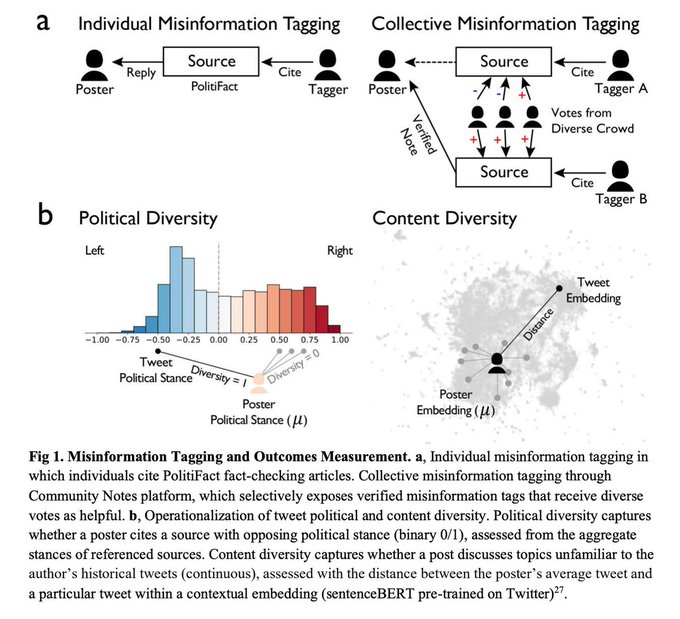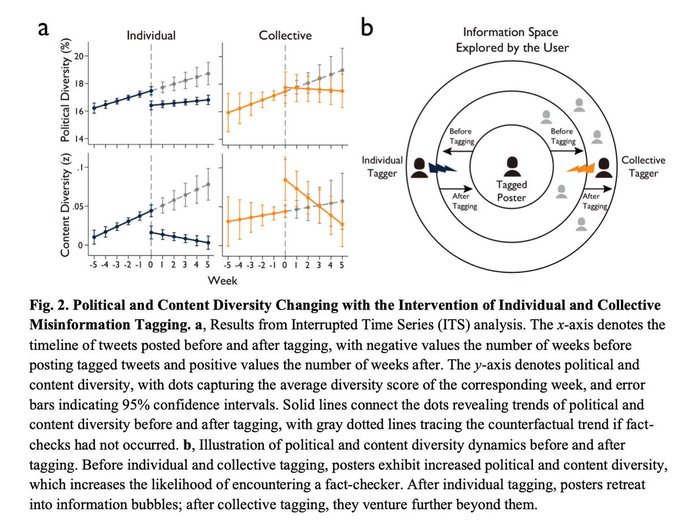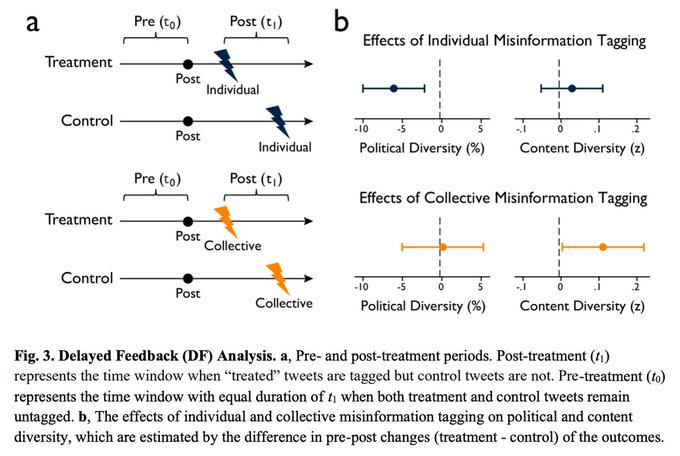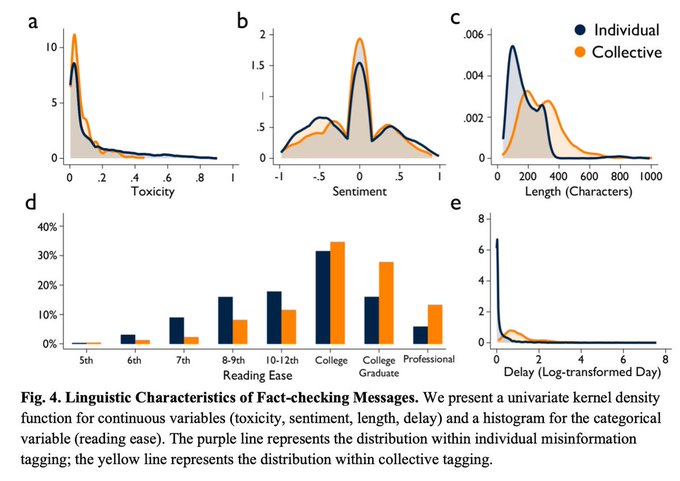
Ross Dahlke 🔑
@Ross_Dahlke
Followers
4,526
Following
2,470
Media
382
Statuses
4,220
PhD candidate @stanford @KnightHennessy @stanforddata | incoming asst. prof. @uw_sjmc
Palo Alto, CA
Joined June 2012
Don't wanna be here?
Send us removal request.
Explore trending content on Musk Viewer
Vance
• 1654136 Tweets
Ohio
• 148596 Tweets
Vivek
• 147923 Tweets
America's Hitler
• 132013 Tweets
Pence
• 103532 Tweets
Jack Black
• 89123 Tweets
#WWERaw
• 77551 Tweets
プライムデー
• 62910 Tweets
NCAA
• 59933 Tweets
連休明け
• 59830 Tweets
Tim Scott
• 44173 Tweets
Romney
• 42313 Tweets
National Anthem
• 41440 Tweets
Rhea
• 30484 Tweets
Hillbilly Elegy
• 27967 Tweets
Lester Holt
• 27735 Tweets
Grammy
• 26785 Tweets
#Number_i_ナゲットおトク夏
• 20018 Tweets
Gunther
• 16912 Tweets
#HomeRunDerby
• 16680 Tweets
Gunnar
• 13733 Tweets
#Renascer
• 13616 Tweets
Devin
• 13421 Tweets
Pete Alonso
• 13063 Tweets
Appalachia
• 11464 Tweets
Alec Bohm
• 10223 Tweets
Last Seen Profiles
📰 personal update: I'm so happy to say I've accepted a tenure-track assistant professorship at
@UWMadison
@uw_sjmc
for next year. To return home to my alma mater is a privilege and a dream.
63
6
322
When people post misinformation and it's tagged as misinfo by a single person, they retreat into echo chambers, but when the post receive a collective tag (e.g., community notes), they are less likely to retreat, finds
@JunsolK
@gxin_ling
@profjamesevans
3
40
155
People share misinformation because they think their audience will like it and anticipate a positive reaction from their followers, finds
@A_Marie_sci
@M_B_Petersen
using experimental and observational data
2
44
120
Populist politicians are successful because voters agree with their policy positions, not because of their populist rhetoric, even when voters hold populist attitudes, finds
@yaoyao_dai
&
@akoustov
in a great conjoint experiment
3
32
113
Increased social endorsement of misinformation, in the form of social media "likes," increases belief in the piece of misinformation, finds
@lucy_h_butler
@Nicolas_Fay
@UlliEcker
8
43
106
Happy (American) Thanksgiving! Thanksgiving dinners with people from opposite-partisan-voting precincts are 30-50 minutes shorter than dinners with just same-party dinners, finds
@MKeithChen
@rarohla
using smartphone-location data in
@ScienceAdvances
1
22
99
Twitter is a highly politically polarized place, with out-group network interactions receiving less engagement and being more toxic, finds
@MaxFalken
@zollofab
@Walter4C
@JurgenPfeffer
@a_baronca
2
24
90
People trust "community notes" more than flags to warn against misinformation because of the additional context rather than source trust, with results holding across partisanship, finds
@chrdrlsbch
Solovev
@NicProllochs
in
@PNASNexus
2
38
145
Opting into online surveys is itself a political behavior: respondents have high rates of voter turnout, campaign donations, and attending rallies, finds
@dhopkins1776
& Gorton
1
31
79
Misinformation interventions reduce belief in false information, however, they can also have a "backfire effect" of reducing belief in factual information across three continents, finds
@EmmaHoes93
@JingwenZhang
@mwojcieszak
et al.
0
11
74
Removing Confederate monuments decreased racial resentment, increased support of affirmative action, and decreased anti-Blake hate crime, with effects strongest in communities closest geographically to removal, finds
@RoxanneRahnama
2
10
74
My first ever publication is finally out! This project with
@RyanMooreComm
and
@jeffhancock
began before I even started grad school.
During the 2020 election, compared to 2016, we find that misinformation website exposure and engagement is down
🚨📬 New paper out in
@NatureHumBehav
w/
@RyanMooreComm
and
@Ross_Dahlke
How many Americans were exposed to misinformation during the 2020 election?
We find that 26.2% of Americans were exposed in 2020 compared to 44.3% during the 2016 election.
🧵👇
7
42
107
2
16
72
Deplatforming far-right misinformation and extremist accounts on YouTube was effective in minimizing their reach, despite these accounts finding a home on alt-tech platforms, finds
@OuzhouAdi
@JonasKaiser
0
21
72
Deplatforming is effective: Although deplatforming increases short-term attention to the targeted influencer, permanent and temporary deplatforming both decrease long-term attention, finds
@manoelribeiro
@shagunjhaver
@cervisiarius
& colleagues
1
27
68
Contrary to conventional wisdom about the agenda setting power of the media, new analysis from
@CBWlezien
suggests that historically public opinion precedes coverage (and coverage does not necessarily precede opinion) in
@The_JOP
2
22
69
How effective are protests? Protests appear to generate significant internet activity but have a limited effect on attitudes and electoral outcomes, finds
@amorygethin
@VinPons
1
19
68
🚨New from me
@_kumarde
Durumeric
@jeffhancock
. We use web-browsing data (N = 21M) to quantify the (in)accessibility of misinformation and news visits, finding that conservative misinformation is most likely to be inaccessible to researchers via scraping
1
20
67
Labeling misinformation as misleading and from fellow in-group members (e.g., dem/ rep) makes people less likely to share it, suggesting social identity is effective in mitigating misinfo, finds
@ClaraPretus
@KobiHackenburg
@manos_tsakiris
@jayvanbavel
@jayvanbavel
@jayvanbavel
2
21
65
Repeated political defeats diminishes the perceived legitimacy of the process with every loss; after three defeats, people's perceived legitimacy of the political system drops, finds
@anna_a_kern
@_SofieMarien
@LalaHMur
in
@EPSRjournal
2
27
67
Face-to-face conversations about divisive political issues between out-partisans can reduce affective polarization while conversations between in-partisans can cause more extreme political views, finds
@fang_ximeng
et al. in an impressive field experiment
0
25
66
Chancellor Blank asked us all to take a selfie and post it on Twitter with
#UWGrad
. These two guys next to me asked to be in my photo since they don’t have a Twitter
#OnWisconsin
0
4
64
The cherry-on-top of a great
#ica24
was winning a top student paper award for research on the consumption of pinks slime journalism with
@RyanMooreInfo
@acookiecrumbles
@jeffhancock
from
@poli_com
. Pre-print here:
2
3
59
Misinformation experts most want to dedicate resources to misinfo interventions that have been studied the least. They also want interventions that are often ineffective, finds
@robert_a_blair
Gottlieb
@BrendanNyhan
@LauraPaler1
@PabloArgoteT
@cjstainfield
0
15
57
Although corrections to misinformation to work on average, they are 52% more likely to backfire when the correction comes from political outgroup members, finds
@diegoareinero
@elizab3thharris
@steverathje2
@AnnieDuke
@jayvanbavel
1
19
56
News coverage of social media increasingly emphasizes negative uses (e.g., misinformation) and its remedies (e.g., regulation), while increasingly using using anxious, angry, and moral language, finds
@Dan_S_Lane
@Hannah_Overbye
@gagrcin
in
@ica_jcmc
0
11
56
There's been a lot of discussion on the effect of social media.
@sumervaid1
et al. find the relationship between social media and wellbeing varies across people (i.e., psychological disposition) and contexts (e.g., in social places, around family members)
0
11
56
Affective polarization (dislike of opposing partisans) is driven more by substantive policy disagreements, not necessarily partisan identity or loyalty, finds Orr, Fowler & Huber in
@AJPS_Editor
0
12
55
Fascinating look at "The Use and Operationalization of 'Misinformation' and 'Disinformation' by Wikipedia Editors" by Schafer & Zachry in
@wikiworkshop
#WikiWorkshop2024
, showing how these buzzwords become ingrained in language and knowledge
1
13
54
Across 19 countries, preexisting conspiratorial worldviews, more than media diet, predict belief in Russia's justification for invading Ukraine, illuminating the mechanisms by which authoritarian disinformation may impact beliefs, finds
@janzilinsky
et al. in
@polcommjournal
1
30
54
In predicting which interventions will strengthen democratic values, practitioners were better at predicting the best interventions; academics were better at predicting the worst ones, finds
@jgvoelkel
@suji_kang_
@DG_Rand
@RobbWiller
et al in
@PNASNews
0
19
52
🖥️ New from me and
@yinizhang2011
in
@ica_jcmc
. We find that after Trump's defeat, only his female supporters lowered their levels of political expression on Twitter, with the effect being greater for those who expressed a gendered identity in their bio
1
15
50
Receiving no or few likes on social media posts causes negative emotions, stress, and lowers self-esteem, but many likes reduces loneliness, finds
@angelina_vmo
@JurgenPfeffer
et al. using a simulated Facebook environment for a week
1
9
50
Discussing politics in partisan echo chambers (i.e., homogenous groups) leads to affective polarization, compared to mixed discussion groups, finds
@sarahobolt
@katharina_law
& Tilley in
@apsrjournal
0
13
48
Not only can generative AI create political advertisements tailored to the personalities of individuals, but these microtargetting ads can be more effective than non-tailored ads, finds
@almogsi
Edwards
@STWorg
in
@PNASNexus
0
10
48
Despite concerns about the ability of the media to sway public opinion, the media largely plays a reflective role in politics, reflecting policies and preferences, finds
@CBWlezien
&
@s_soroka
in
@apsrjournal
1
11
47
The introduction of local news radio can increase political knowledge and interest, finds Don Green,
@dylanwgroves
@msisiri
@MontanoBea
@BardiaRahmani
in a great natural experiment in Tanzania in
@The_JOP
1
13
44
So happy to be joining
@StanfordData
as a Stanford Data Science Scholar.
I will spend the next two years in this community continuing to build my data capture and digital ecosystem experimentation software and participating in the Stanford DS community
5
3
44
Online hate speech may not change group perception but counter speech is polarizing finds
@SvenjaSchaefer
@Isabella_Reb
@BoyerMing
@AMPlanitzer
, suggesting that more consideration should be given to unintended consequences of well-meaning deliberation
0
14
45
Maturing in how you present your data (or is it that I'm getting lazy?)
#rstats
#ggplot2
@rstatsmemes
1
7
42
Anti-Muslim and anti-Jewish hate online stems from the same fringe, white supremacist communities who target both groups interchangeably, finds
@willrhobbs
@NazitaLajevardi
, Li &
@calebjlucas
, suggesting we need to consider hate against both in tandem
0
26
44
When politicians spread flagrant misinformation, their supporters do not necessarily believe it to be "fact" but instead provide a moral justification of it revealing a deeper "truth," finds
@minjaekim22
@ewzucker
et al.
1
9
44
Agricultural technology expansion during the 20th century may be the cause of the Great Plain's conservative politics, finds
@_adasgupta
& Ramirez
0
15
44
Algorithms influence our online lives, but who thinks about them? And how do they feel about them?
@anneohirsch
&
@g_neubaum
in
@ica_jcmc
find that younger users, those with more education, and those who use social media more are more aware of algorithms
4
9
42
Had a great time last night at the
@KnightHennessy
completion ceremony, marking three years since I started KHS at Stanford. It’s been the honor of a lifetime being a member of such a smart, passionate, and caring community.
1
2
42
I had a wonderful time presenting my work on the effects of misinformation on false elections beliefs at
#commhorizons24
. Thanks to
@richardhuskey
@soojongkim_1
@hjhether
for hosting such a great gathering of scholars.
1
4
42
For most people, Twitter is a non-political, moderate information environment (although more political than the open web), finds
@dfreelon
@MeredithPruden
@Qunfang5
@Xiayp
@DanielAppUNC
& colleagues using a novel and impressive user-centric approach
0
14
42
"Polarizing content warnings" on news and social media that reading news about political polarization drives further polarization reduces affective polarization via perceptions of polarization, finds
@emily_kubin
@CvSikorski
, building on inoculation theory
1
12
41
99.5% of people following misinformation spreaders continue to follow them (every month), with liberals more likely than conservatives to unfollow, finds
@JoshAshkinaze
@eegilbert
@cerenbudak
1
16
39
@JoelLeForestier
Here is my go-to. For students who may be reading a research paper for the first time, I’ll even have them fill out table answering the questions
1
3
41
All major changes in hostility on Twitter during the 2020 U.S. Election were driven by offline events, particularly by users within politically hostile networks and ideological echo chambers, finds
@stighebbelstrup
&
@M_B_Petersen
in
@PNASNexus
0
11
39
People perceive information as more credible based on message quality, source credibility, and message fluency, with personal topic knowledge not playing a significant role, illuminating mechanisms of misinformation spread, finds Ou & Ho in
@jmcquarterly
1
7
39
When misinformation is covered on mainstream broadcast news, it is largely covered through the lens of platform policy and party politics, finds
@TheJianingLi
@prowag
. Important work in the conceptualization of misinformation among the press and public
1
11
38
"Avoiding the News" examines who avoids news and why they avoid it. It's a great, modern journalism studies book that situates people as center of inquiry by
@BenjaminToff
@ruthiepalmer
@rasmus_kleis
(also a great pool-side read!)
2
2
37
Honored to the first winner (along with
@floriankeusch
!) of Social Science Computer Review's Peer Reviewer Award 🙌 Grateful to
@DeanaRohlinger1
and everyone else at the journal!
Help me congratulate Soc Sci Computer Reviews's first winners of the Peer Reviewer Award (August to December 2023). Thank you to
@floriankeusch
and
@Ross_Dahlke
for contributing to our interdisciplinary community. Reviewing among some of the most important work we do!
0
1
11
2
1
38
Really cool network analysis on the development of the global fact checking movement by Lauer &
@gravesmatter
identifies "elite" fact checking orgs that shape the development of the field
0
10
37
Communication is fast-growing but sometimes is criticized for being both too inward looking and too dependent on other disciplines.
@jiaying_huuu
Oktavianus &
@cityu_jzhu
tackle this debate with a great citation network analysis in
@Journal_Of_Comm
0
14
37
Public policy is more responsive to men's policy preferences than women's, highlighting inequalities in democratic policy making, finds
@rubenbmathisen
1
12
36
Perceptions of more anonymity as a platform affordance is associated with higher levels of participation in uncivil discussion, but it also correlates with perceptions of reduced polarization, finds
@makkafaimacau
@mengyuli_lmy
@uatiff
in
@SocialMedia_Soc
0
8
35
Disabling smartphone notifications did not change smartphone behavior (checking frequency and screen time), nor did it change perceived control, productivity, or smartphone-related distractions, finds Dekker Baumgartner
@sindysumter
@dscheykopp
1
7
35
Arguments about electability are driven by ideological preferences, not actual electability evaluations. Voters also see women and minorities as less electable but ideologically extreme candidates as more electable, finds
@hjghassell
@NeilBigBusiness
0
11
34
When people receive political campaign text messages from female-named volunteers, they are more offensive and silencing, but they are more likely to respond and agree to the ask, finds
@al_yan1
@RIBernhard
in a great field experiment in
@apsrjournal
0
10
34
How much of an effect did the Dobbs v. Jackson abortion Supreme Court case have on the 2022 U.S. midterm election? The answer: a lot! finds
@ClaudiaKann
@DannyCEbanks
@Jacob_Morrier
@rmichaelalvarez
in
@PLOSONE
0
15
34
Nonpolitical people receive a plurality of political Twitter content from peers, not traditional sources. But partisans receive political content from a more balanced set of traditional info sources, finds Shamir
@jennifer_oser
@grinbergnir
1
12
33
✨New from me and my amazing coauthors on audio-as-data🎙️ For both speech-to-text and computational phonology tools, we find that results across tools are generally similar, but some subtle preprocessing differences can materially change the output
🚨 Thrilled to share
@MDDCoop
's latest peer-reviewed work in
@CogitatioMaC
: "Audio-as-Data Tools: Replicating Computational Data Processing" by me,
@j___greenfield
@yangyunkang
@Ross_Dahlke
@m_dot_brown
@beccalew
and
@bin_chen19
!
1
18
38
2
9
33
Affective polarization (dislike of out-partisans) does not necessarily spur new voters but does help sustain existing levels of voting, suggesting that affective polarization mainly serves to exacerbate participatory inequalities, finds
@polpsychjoe
1
13
32
Conversations with chat-based generative AI can durably reduce conspiratorial beliefs and worldview, finds
@tomstello_
@GordPennycook
@DG_Rand
, suggesting that AI is a scalable potential solution to some deep social issue
0
6
33
Most misinformation media literacy interventions are only short-term, but long-term real-world high school courses may increase students' ability to determine the reliability of mainstream news (but not necessarily untrustworthy news), finds
@EmmaHoes93
0
8
32
High and low levels of affective polarization (dislike of out-partisans) is connected to low support for democracy, but moderate amounts of it relate to high levels of democratic support, suggesting it may not be all bad, finds
@lisajnssn
@turkenburgemma
0
6
30
Compared to a chronological timeline, X's algorithmic timeline shows people less news, but the news it does show is more ideologically diverse to the user, less extreme, and higher quality, finds
@stephanietwang
@Saarahuang
@alvinyxz
@DrMetaxa
2
9
32
Community-centered ethnic media increases turnout in local elections by minority ethnic immigrants targeted by the radio programming finds
@SZonszein
0
5
31
Alarmist media coverage of disinformation has negative downstream consequences, including increasing support for heavily restrictive speech regulation, finds
@ajungherr
&
@OuzhouAdi
in
@PolBehavior
0
11
30
New from my wonderful colleagues
@angelaylee374
@RyanMooreComm
: Digital media literacy interventions designed for communities of color improved literacy skills, but only those recruited via community outreach improved their ability to detect misinformation
0
5
30
Simply platforming right-wing activists via interviews can increase public support for right-wing views and perceptions of the popularity of such views. Really cool use of audio as a stimulus by
@dianebolet
&
@FlorianFoos
1
6
28
Younger adults are more tolerant of undemocratic behavior (violations of free and fair elections, civil liberties, checks and balances), compared to older adults, suggesting young people may contribute more to democratic backsliding, finds
@kristianvsf
0
6
29
Civic education videos (e.g., about civic rights, separation of power) increases support for democracy across 33 countries w/ 40k participant, with effects lasting at least two weeks, finds
@AnjaNeundorf
@aykut_ozturk_
Finkel &
@ericka_rascon
0
8
28
The presence of blatantly false news creates an environment in which other, more plausible, false news becomes more believable, finds
@levari_david
@Cameron_Martel_
@ROrchinik
@RaBhui
Seli
@GordPennycook
@DG_Rand
2
14
28
Americans support censoring political opponents because they feel their opponents are likely to share harmful/untrue information, including content that _feels_ harmful/untrue even if it may not actually be, finds
@emily_kubin
@CvSikorski
@kurtjgray
0
6
27
Current events and social movements change parenting and socialization processes, for example, with the Black Lives Matter movement changing parenting priorities, finds Anoll
@_amengel
@DrMackIT
in
@apsrjournal
1
5
27
LLM's quality of answers to political questions varies based on party affiliation of the question asker, with answer quality and question topic correlating, finds
@rmichaelalvarez
@Jacob_Morrier
1
4
27
When Weibo started displaying users' geolocation, incivility rose as geolocation can cue ideological affiliation, with a smaller audience increasing the effect, finds
@YufanGuoKuoKwok
@li_yuhannn
@tianyangyt
in a great natural experiment
0
9
26
Media literacy is important for combatting misperceptions, but it appears to be more helpful for liberals than conservatives in the context of COVID, finds
@TheJianingLi
@borah
@JisooKim_29
@sijiayang_camer
et al. in
@icsjournal
0
14
26
Fact checking labels from professional fact checkers are perceived as the most effective, with user-labeled fact checks as least effective. Dems perceived the effectiveness of all types higher than Reps, finds
@JiaChenyan
@taeyoungatut
in
@MisinfoReview
2
5
26
If you're interested in reading more about "pink slime" journalism, check out this pre-print from me
@RyanMooreComm
and colleagues that was just accepted at
#ICA24
!
0
3
25
Selective news avoidance is not only a between-person construct, it also fluctuates within-person over time as people respond to individual and contextual changes, finds
@kimandersen88
Shehata
@Mo_Skovsgaard
@JesperStromback
in Communication Research
0
6
25
Not even a newly-broken ankle could stop me from presenting my poster at the first annual polarization research lab meeting. Congrats to
@ylelkes
@seanjwestwood
and
@HooverInst
for a great event!
5
1
25
📧 Feeling inundated with emails from political campaigns? We were too, so we decided to write a paper about them! New work from
@bin_chen19
@borah
me and
@JosephineLukito
w/
@MDDCoop
Thrilled to share
@MDDCoop
's new pub in
@journalqd
: "Battle for Inbox and Bucks: Comparing Email Fundraising Strategies of Donald Trump and Joe Biden in the 2020 U.S. Presidential Election" by me,
@borah
,
@Ross_Dahlke
, and
@JosephineLukito
!
1
2
16
1
5
25
Searching online to evaluate whether misinformation is fake or not actually increases the likelihood of believing the misinformation, finds
@aslett_kevin
@ZeveSanderson
@WilliamGodel
@persily
@Jonathan_Nagler
@j_a_tucker
in
@Nature
0
6
25
When Facebook users deactivated their accounts for 6 weeks before the 2020 U.S. election, it reduced political participation and possibly votes for Trump. It did not reduce political knowledge, polarization, or turnout, finds
@HuntAllcott
et al.
1
5
24
Targeted health misinformation interventions can help increase skepticism of inaccurate information, but it also may cause backfire effect, with people being unduly skeptical of accurate news, finds
@ba_lyons
et al.
2
6
25
Partisan blocking counter-partisans drives polarization on Twitter, with Democrats more likely to block Republicans than vice versa because Dems want to block accounts that post low-quality information, finds
@Cameron_Martel_
@_mohsen_m
@DG_Rand
et al.
1
4
24
Economic austerity increases support for populist parties in Europe, however, this support is found primarily in economically vulnerable regions, finds
@LeoBaccini
@SattlersThomas
0
9
23























































































































































































































































































































































